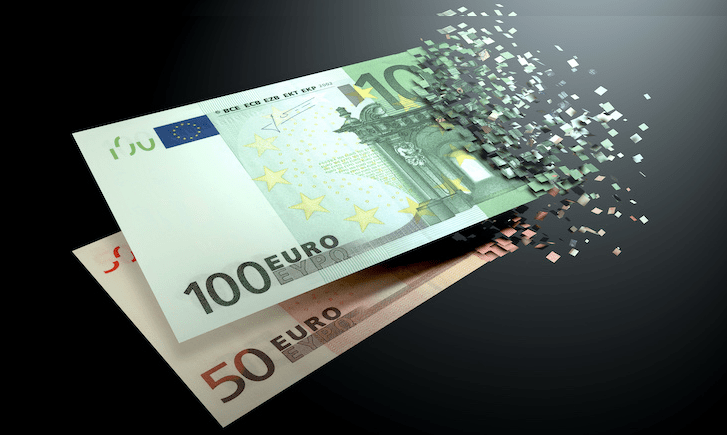With the rise of the digital economy, various countries have intensified their research on digital currencies in recent years. The emergence of sovereign digital currencies in various countries also means that we are about to enter a new era of digital currencies and digital payments.
The Central Bank of my country announced the launch of its own legal digital currency DC/EP on May 8, 2020, and it is conducting trials in many cities across the country. The European Central Bank (ECB) is expected to accelerate research on the digital euro in the next few months and launch the digital euro as soon as possible.
The EU takes the first step in the “digital euro”
The European Union has always been more cautious about digital currencies. This is due to the protection of the stability of the euro and European financial considerations. However, as some countries have successively launched the process of launching sovereign digital currencies, including some well-known companies have also launched digital currencies, the EU cannot turn a blind eye.
While cautious, the EU is also preparing for the advent of the digital currency era. In 2018, the European Union promulgated the “Fifth Edition of the Anti-Money Laundering Order”. In this decree, the EU classifies cryptocurrency business and banking, payment processing, gaming and other services into the same legal category, which in fact provides protection for cryptocurrency business.
According to the previous agreement reached by the EU finance ministers, when the risk of digital currency has not been completely eradicated, or the relevant legal and supervisory framework has not been established, the EU will eliminate the use of private digital currencies, and member states shall not include the introduction of encrypted currencies. Its laws and regulations. Although Europe is not as active as the United States and China in the era of digital economy, as a highly developed capital-intensive region, Europeans’ consumption, savings, and investment behaviors are becoming more and more digital, and the euro’s trust in the member states is also based on this. Starting point, the European Central Bank has drawn a rough blueprint for the future “digital euro”.
In October 2020, the European Central Bank officially issued a document introducing the European Union’s plan to develop digital currencies. The European Central Bank believes that no matter which technology the “digital euro” uses, it must be strictly distinguished from encrypted currencies. The EU’s vision for the “digital euro” is to be safe, efficient, convenient, and legally compliant, while at the same time building a high degree of trust among EU citizens.
The digital euro may suck up 8% of deposits in eurozone banks
According to previous news, the European Central Bank (ECB) will speed up the study of the digital euro in the next few months. Although there are still a few years before the final launch, it has not neglected the impact of the launch of the digital euro.
Whether the introduction of a digital sovereign currency will eat into the funds in the current commercial bank accounts is something that more than 90% of the world’s central banks that are studying digital currencies need to consider. For the European Union, the member states cannot be ignored.
Morgan Stanley analysts estimate that all euro zone citizens over 15 years old will transfer 3,000 euros ($3,637) to a “digital wallet” controlled by the European Central Bank. This estimate is based on a “bear market” scenario.
The digital euro may suck up 8% of customer deposits in euro zone banks, especially for small countries such as Estonia, Slovakia, Latvia, and Lithuania, which will be more than 8%. In theory, this could reduce total deposits in the Eurozone by 873 billion Euros (close to 8%).
Digital euro can provide better privacy protection
Although the European Central Bank has a lot of concerns about all kinds of digital currencies, in terms of protecting privacy, Fabio Panetta, a member of the ECB’s executive board, believes that the digital euro will play a positive role and can also protect the euro zone from the “threat” of cryptocurrencies. Officials of the European Central Bank believe that if the European Central Bank participates in digital payments, it will pay more attention to privacy protection than private companies. Compared with private companies that collect large amounts of data from users to satisfy their business interests, the European Central Bank will not store, manage, and user data. Involving commercial interests. It is reported that the European Central Bank has conducted a small offline payment experiment before. Transfers of tens of euros or even hundreds of euros can be completed through Bluetooth between devices. There will be no payment except in the wallets of the payer and the payee. data record. There is no doubt that payment privacy is one of the main concerns when people use digital currencies, and the European Central Bank is trying to show everyone that it has the ability to separate identity information from payment information. If everything goes smoothly, it is expected that the digital euro will circulate on a large scale in the euro area around 2025

You must log in to post a comment.